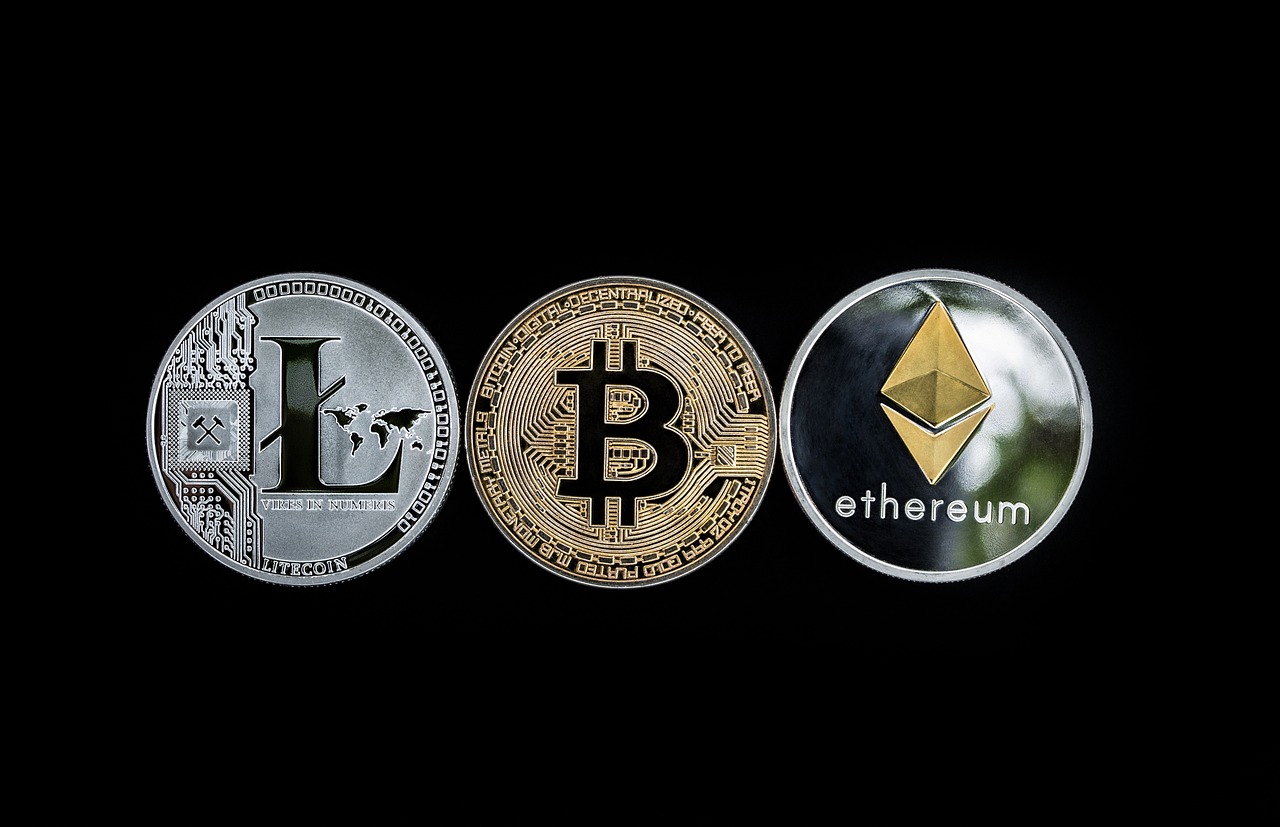Blockchain Revolution in the Automotive Industry

September 23, 2023
The world of technology never stands still. Just when we thought we’d reached peak innovation with the integration of AI and IoT in vehicles, another transformative technology emerges onto the scene: blockchain. Originally known as the underlying mechanism powering cryptocurrencies like Bitcoin and Ethereum, blockchain is finding applications across industries. One of the most promising sectors ripe for its revolution is the automotive industry.
How Efficiently Blockchain Technology Can Change Finance?
What is Blockchain?
Blockchain is often thought of as a digital ledger or a record-keeping book. However, instead of being stored in a single location or controlled by a centralized entity, this ledger is dispersed across a vast network of computers. Here’s a deeper dive into the underpinnings of blockchain:
Decentralization
Traditional databases such as a SQL database is centralized. On the other hand, on the blockchain, every participant (often referred to as a node) on the network has access to the entire database and the complete history of transactions. No single participant can control the data; everyone can verify the data, making it a democratized system.
Consensus Algorithms
One of the fundamental aspects of blockchain is how it ensures the validity of a transaction. Consensus algorithms, like Proof of Work (PoW) and Proof of Stake (PoS), are mechanisms used to achieve agreement across all nodes in the network about the authenticity of transactions. This process eliminates the need for intermediaries and ensures that everyone agrees with the data’s validity.
Cryptography
At the heart of blockchain’s security features is cryptography. Every transaction on the blockchain is encrypted. Once the transaction is approved, it’s represented online as a block. Each of these blocks has a unique code called a cryptographic hash, along with the hash of the previous block. This chained hashing mechanism ensures the integrity and unchangeability of every block, rendering the blockchain tamper-evident.
Smart Contracts
Beyond just recording transactions, blockchain can be programmed with conditions that, when met, automatically trigger a specific action. These are known as “smart contracts”. For instance, in the automotive world, a smart contract might be set up to automatically transfer car ownership once payment has been verified, without the need for a traditional intermediary.
Transparency with Privacy
While the entire history of transactions on the blockchain is transparent and accessible to anyone in the network, the identity of the person making the transactions is encrypted and represented by a digital signature. This juxtaposition means that while everyone can see the transaction, only the parties involved can see the specifics, ensuring a balance between openness and privacy.
Immutability
Immutability refers to the unchangeable nature of transactions once they are added to the blockchain. It ensures that once data is added, it cannot be altered, ensuring historical accuracy and trustworthiness of the data.
Blockchain is a meticulously designed system that brings together principles of decentralization, cryptography, and transparency. It’s a paradigm shift from centralized models, offering unique benefits that have captivated industries beyond just finance, including the automotive world.
Catalyst Blockchain Platform: it launches on Corda
How is Blockchain Transforming the Automotive Sector?
Supply Chain Transparency and Authenticity in the Automotive Industry
The intricate matrix of the automotive industry, with its myriad of manufacturers, suppliers, and dealers, necessitates robust mechanisms to ensure transparency and authenticity. Blockchain emerges as a pivotal solution, offering unmatched traceability in this complex ecosystem.
Tracing the Journey of Automotive Components
Every automotive component has an extensive journey, starting from raw materials and culminating as an integral part of a vehicle. Blockchain can authenticate the origin of these materials, ensuring their ethical and quality standards. As these components traverse the supply chain, blockchain provides real-time tracking, optimizing logistics and promptly addressing disruptions. One significant challenge the industry faces is the prevalence of counterfeit parts. Blockchain can tag each component with a unique identifier, ensuring vehicles integrate only genuine, quality-tested parts. Moreover, should there be a need for a component recall, the technology can swiftly pinpoint the affected batches, streamlining processes and mitigating risks.
Vehicle History and Ownership in the Automotive Industry
The automotive industry, like many others, hinges on trust between sellers and buyers. Historically, assessing a vehicle’s history and ownership lineage has been riddled with inconsistencies, which can result in misconceptions and, sometimes, regrettable investments. Blockchain, with its indelible and transparent characteristics, offers a resolution to these issues.
A Comprehensive Record for Every Vehicle
Every vehicle has a tale to tell, from its initial assembly line moments to its most recent road trip. Blockchain technology can capture this narrative in its entirety. Each maintenance check, every ownership transfer, and even minor incidents can be recorded on the blockchain, ensuring that potential buyers access a vehicle’s unaltered history.
By providing a transparent record, blockchain mitigates the challenges of misinformation or deliberate omission of facts. When someone decides to sell a car, the prospective buyer can easily check its detailed history, assuring that they are making an informed decision based on accurate data. This not only bolsters confidence in second-hand vehicle transactions but also helps in maintaining the value of vehicles with well-documented histories.
The application of blockchain to record vehicle histories promises to instill a higher level of trust in automotive transactions, ensuring all parties involved have a clear and consistent understanding of a vehicle’s past.
Seamless Transactions in the Automotive Industry
The automotive industry, despite its advancements, often grapples with complexities in transactional processes. Traditional methods can be cumbersome, involving intermediaries, excessive paperwork, and sometimes unnecessary delays. Blockchain’s introduction promises to streamline these processes, offering rapid, transparent, and secure transaction avenues.
Revolutionizing Automotive Commerce
For every vehicle purchase or service, there’s a transaction lurking behind the scenes. Blockchain transforms these transactions into swift, paperless processes. When a customer chooses to buy a vehicle or a part, the payment and ownership transfer can be executed on the blockchain, reducing the need for intermediaries like banks or financial institutions. This decentralization ensures that transactions are processed faster and with minimal fees.
Moreover, the transparency offered by blockchain ensures that both parties can verify and trust the transaction’s authenticity. Contracts, warranties, and service agreements can be digitized using “smart contracts” on the blockchain, which automatically execute when specific conditions are met, further simplifying the transaction process.
By adopting blockchain for its transactions, the automotive industry can offer customers a smoother, more transparent buying experience, elevating trust and efficiency in every sale and service.
Autonomous Vehicles and Micropayments in the Automotive Industry
The dawn of autonomous vehicles promises to reshape the transportation landscape. However, these self-driving marvels won’t just alter how we commute; they also introduce new paradigms for transactional processes. Coupled with blockchain, these vehicles are poised to navigate the world of micropayments with unprecedented efficiency.
Self-driving Cars and the Economy of Small Transactions
Imagine a future where your car drives itself to a charging station, pays for its own energy, finds a parking spot, and compensates for the space without any human intervention. Such is the vision with autonomous vehicles powered by blockchain.
Autonomous vehicles will engage in numerous small transactions daily, from toll payments to parking fees. Traditional payment systems, with their overheads and transaction fees, are ill-suited for this volume of micropayments. Blockchain, with its decentralized nature, facilitates these transactions efficiently, reducing costs and ensuring rapid processing.
Moreover, the security and transparency of blockchain guarantee that each micropayment is recorded, verifiable, and immutable. This not only instills confidence in the system but also paves the way for innovative business models. For instance, car owners could lease out their vehicles for autonomous ridesharing, with blockchain managing payments, schedules, and user ratings.
Embracing blockchain in the realm of autonomous vehicles can drive the industry towards a seamless integration of transport and commerce, ensuring that our self-driving future is not just smart in navigation but also in transaction.
Improved Security in the Automotive Industry
In an era where connectivity drives the automotive world, the security of vehicular systems and data is paramount. As vehicles become more digitally integrated, they also become vulnerable to cyber threats. Blockchain emerges as a formidable defense mechanism against such challenges.
Fortifying Vehicular Digital Frameworks
Blockchain’s decentralized nature inherently diminishes single points of failure, making it more challenging for hackers to compromise the system. Each transaction or data entry is encrypted and then linked in a chain, ensuring that any tampering attempt would require altering the entire chain—a nearly impossible feat.
Moreover, as cars evolve into connected hubs, interacting with various devices and systems, blockchain can authenticate these interactions, ensuring that only trusted devices gain access. This safeguard not only protects the vehicle’s core functions but also the personal data of its occupants.
Incorporating blockchain thus offers the automotive industry a robust shield, ensuring that vehicles remain secure in a rapidly digitizing world.
Ride-Sharing and Car Leasing in the Automotive Industry
The surge of ride-sharing platforms and car leasing options highlights the evolving dynamics of transportation preferences. Blockchain provides a backbone for these shifts, introducing heightened levels of efficiency, transparency, and trust.
Decentralizing Mobility Solutions
With blockchain, the concept of peer-to-peer ride-sharing can truly take root. Riders and drivers can interact directly, bypassing traditional platform intermediaries. Each ride’s details, from fare calculations to driver ratings, can be stored on a transparent, immutable ledger, ensuring both parties have clarity and recourse in disputes.
On the car leasing front, blockchain facilitates swift, secure lease transactions. All terms, from lease durations to monthly payments, can be embedded into smart contracts. Upon meeting the defined conditions, these contracts autonomously execute, simplifying processes and reducing administrative burdens.
By integrating blockchain, ride-sharing and car leasing ventures can ensure smoother operations, fostering greater trust among users and paving the way for a more decentralized transportation future.
The Art of Digital Marketing: Strategies for Tech-Savvy Businesses
Challenges Ahead
While blockchain promises transformative potential, the technology is not without challenges. Concerns include:
- Scalability: As more transactions are added, the size and complexity of the blockchain grow. Solutions are being developed, but scalability remains an issue.
- Interoperability: For maximum effectiveness, different blockchains need to communicate with each other, especially in a diverse industry like automotive.
- Regulation: The decentralized nature of blockchain challenges traditional regulatory frameworks. Policymakers are working to catch up, but there’s a long road ahead.
The Future of Blockchain
The automotive industry stands at the cusp of another major revolution with the integration of blockchain technology. While challenges exist, the potential benefits in terms of transparency, efficiency, and security are too significant to ignore. As industry players invest in research and collaboration, it’s only a matter of time before blockchain becomes as ubiquitous in cars as GPS systems are today.








